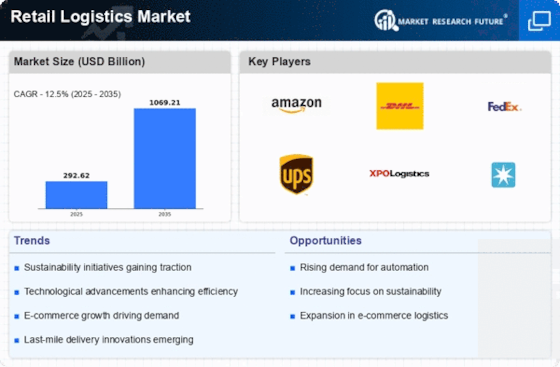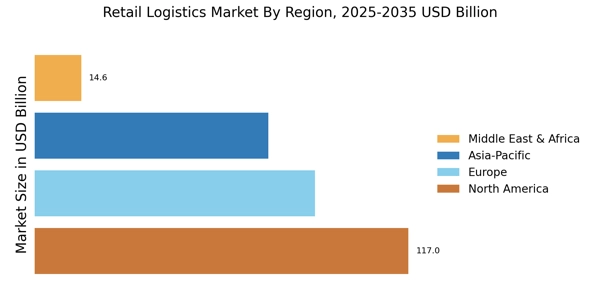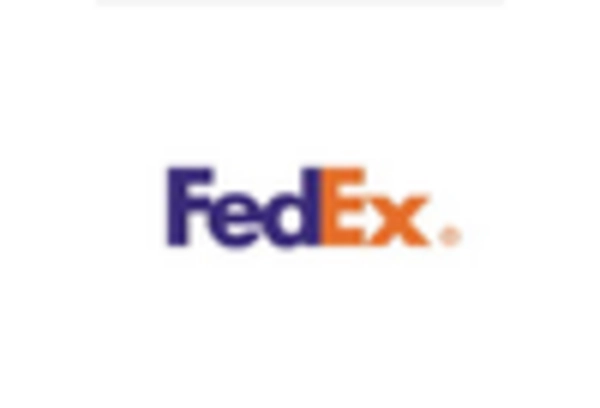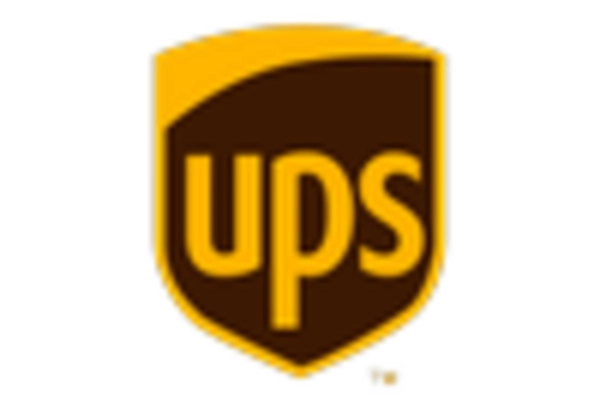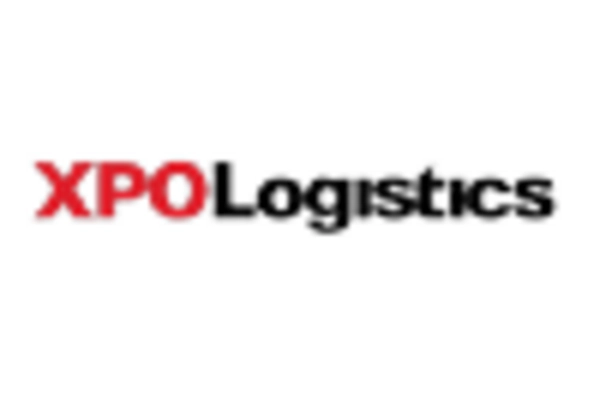E-commerce Growth
The Retail Logistics Market is experiencing a notable surge due to the rapid expansion of e-commerce. As consumers increasingly prefer online shopping, logistics providers are adapting to meet the rising demand for efficient delivery services. In 2025, e-commerce sales are projected to reach approximately 6 trillion USD, necessitating advanced logistics solutions. This growth compels retailers to enhance their supply chain capabilities, ensuring timely deliveries and improved customer satisfaction. Consequently, logistics companies are investing in technology and infrastructure to streamline operations, thereby positioning themselves favorably within the Retail Logistics Market. The shift towards e-commerce is likely to continue driving innovation and competition among logistics providers.
Consumer Expectations
Consumer expectations are evolving, significantly impacting the Retail Logistics Market. Today's consumers demand faster delivery times, transparency, and flexibility in shipping options. A recent survey indicates that 70% of consumers expect same-day or next-day delivery, compelling retailers to adapt their logistics strategies accordingly. This shift in consumer behavior drives logistics companies to innovate and enhance their service offerings. As a result, the Retail Logistics Market is witnessing an increased focus on last-mile delivery solutions and improved tracking systems. Meeting these heightened expectations is crucial for retailers aiming to maintain customer loyalty and satisfaction.
Sustainability Trends
Sustainability trends are increasingly influencing the Retail Logistics Market. As environmental concerns grow, consumers and businesses alike are prioritizing eco-friendly practices. Logistics providers are responding by adopting sustainable transportation methods, optimizing routes to reduce emissions, and utilizing recyclable packaging materials. In 2025, it is estimated that 50% of logistics companies will implement green initiatives as part of their operational strategies. This shift not only addresses consumer demand for sustainability but also enhances brand reputation. Consequently, the Retail Logistics Market is likely to see a rise in partnerships between retailers and logistics providers focused on sustainable practices.
Technological Advancements
Technological advancements play a pivotal role in shaping the Retail Logistics Market. Innovations such as artificial intelligence, machine learning, and the Internet of Things are revolutionizing logistics operations. These technologies enable real-time tracking, predictive analytics, and automated warehousing, enhancing efficiency and reducing operational costs. In 2025, the integration of these technologies is expected to increase logistics efficiency by up to 30%. As retailers seek to optimize their supply chains, the demand for tech-driven logistics solutions is likely to rise. This trend not only improves service delivery but also fosters a competitive edge for logistics providers within the Retail Logistics Market.
Global Supply Chain Resilience
The need for The Retail Logistics Industry. Recent disruptions have highlighted vulnerabilities in supply chains, prompting companies to reassess their logistics strategies. In 2025, businesses are expected to invest significantly in diversifying their supply chains and enhancing their logistics networks to mitigate risks. This focus on resilience encourages logistics providers to develop more robust systems capable of adapting to unforeseen challenges. As a result, the Retail Logistics Market is likely to witness a shift towards more flexible and responsive logistics solutions, ensuring continuity and reliability in service delivery.


